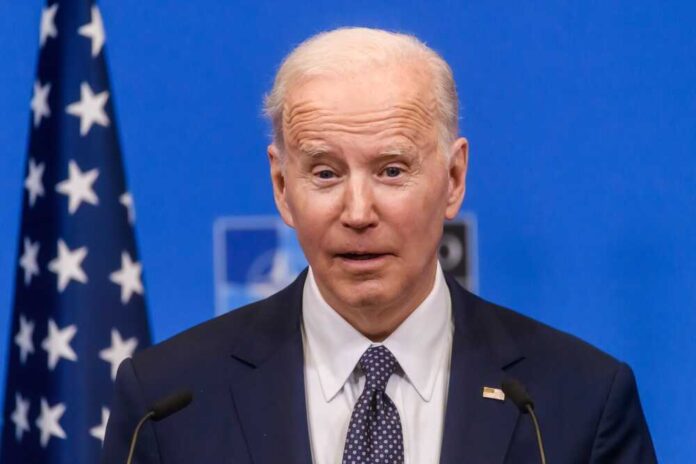
(TheRedAlertNews.com) – In a frightening revelation, budget experts have disclosed that Joe Biden’s latest budget proposal is going to be an unmitigated disaster as its taxation and spending measures would pile nearly $15 trillion in extra debt by the end of the president’s possible second term.
See a tweet with a graph projecting the tax impact of Biden’s budget proposal below!
Critics have told The Daily Caller that the budget could lead to inflationary pressures due to deficit spending without effectively tackling the root causes of unaffordability and escalating prices.
More specifically, Biden’s budget proposal for the fiscal year 2025 outlines several new spending initiatives and tax hikes that could increase the national debt by $14.8 trillion over the next four years, points out Richard Stern, director of the Grover M. Hermann Center for the Federal Budget at the Heritage Foundation.
“Between the new anti-growth taxes and large deficits, you get a reduction in the real supply of goods and services and more financial assets floating around — more dollars chasing fewer goods and services — lots of inflation going forward, and the Fed will likely respond by waffling between printing money like crazy to cover some of the deficits — jacking up inflation even higher — and tightening the money supply, sending interest rates to the moon and only slightly bringing down inflation,” Stern explained.
Inflation rates, as of February, were recorded at 3.2% year-over-year, marking an 18.5% increase since Biden assumed office in January 2021.
Biden’s economic strategy has included significant stimulus measures, such as the $1.9 trillion American Rescue Plan in March 2021 and the $750 billion Inflation Reduction Act in August 2022.
“Biden’s budget is anticipating that the debt will go from $260k per household to $370k per household. That will continue to send interest rates way higher … which both pushes housing out of reach for most people but also will starve business growth,” Stern explained further.
The Federal Reserve has raised its federal funds rate to between 5.25% and 5.50% in response to inflation, affecting credit costs and mortgage rates.
Stern also pointed out that the government’s increased production of financial assets (bonds) without a corresponding rise in real productive capacity would drive inflation higher.
Biden’s budget proposes $258 billion for building or preserving two million housing units, targeting lower- and middle-income families.
However, experts like Chris Edwards, the Kilts Family Chair in Fiscal Studies at the Cato Institute, criticize federal subsidies for housing as ineffective and argue that local regulations, particularly in states like California, are the real barriers to construction.
Ever wonder why Bidenomics isn't working?
Biden's 10-year Budget:
Federal Taxes per household in 2025 – $41,600
Federal Taxes per household in 2034 – $60,600Monthly Net Interest costs 2034 – $600
Monthly Net Interest costs 2034 – $900 pic.twitter.com/IUjLdOQ55y— Richard A. Stern (@RichAStern) March 15, 2024
Copyright 2024, TheRedAlertNews.com














